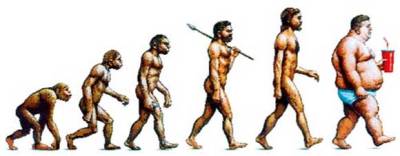What an interesting topic indeed.
As of mid-January, the European Court of Justice classified obesity as a disability. Essentially, this classification now requires companies to accommodate their employees if their weight hinders their ability to perform on the job. However, the ruling did not extend to “declaring it a protected characteristic against which all discrimination is prohibited” (from The Guardian). According to these rulings, there doesn’t need to be any sort of underlying medical condition to classify it as such. But then, this makes you wonder what does “obese” mean to the law? To employers? To the employees?
Before we get into this I can already sense it’s going to be a controversial topic, and I want to mention that this is just my opinion of the situation. Feel free to disagree, in fact I’d be very interested in what you have to say if you do! It might help me gain an even better understanding of the situation. Or, if you agree with me, feel free to let me know that too! Whatever floats your boat – I want this to be a place where others feel comfortable sharing their opinions.
Now onto the content.
Obesity is defined by the World Health Organization (WHO) as: “abnormal or excessive fat accumulation that presents high risk to health”. Usually it’s determined by Body Mass Index (BMI), which is a rough estimation based on your height versus your weight. For a person to be considered obese they must have a BMI of 30 or higher. I never take BMI at face value, and many agree that it isn’t an accurate representation of an individual’s fat percentage or distribution. However, in this circumstance it just provides a quick number for reference. Which only emphasizes my question of how can you legally classify obesity?
We all know obesity is linked to a plethora of chronic diseases such as diabetes, cardiovascular disease, cancer, etc. It is a debilitating condition, puts excessive wear on the joints and the body overall. This provides the reasoning behind the EU court’s ruling. Because obesity “hinders the full and effective participation of the person concerned in professional life on an equal basis with other workers…” (Guardian), they believe it to fall under the general scope of disability. Obesity is something that is difficult to live with, difficult to manage, and difficult to change. But at what point does that hinder the “full and effective participation” of an individual in a working environment? How is that defined?
It is not a cut-and-dry topic, and especially since we’re traversing into uncharted territory black and white simply doesn’t exist. On one hand this leads to the apparent accommodation of the upwards trend of obesity rates across the world. It is in this vein that I don’t whole-heartedly support the EU’s decision. On the other hand, obesity is a complex issue. Not everyone is chronically obese because they’ve “been lazy”. Some may want to lose the weight, but they get defeated by the struggle. In The Guardian’s article, the gentleman who prompted this change is in this category.
Naturally, this ruling is not a sweeping conclusion to anything. There is still room for improvement. Right now I can’t say I would support their decision in classifying obesity as a disability. I think this is a band-aid for a much bigger problem. That bigger problem being the epidemic that is fast sweeping the United States, and other parts of the world in some cases: obesity itself. The fact that this is growing. That people are discriminated against because of it. But in classic government fashion, it’s simply a way to deal with a situation without actually dealing with it.
I do, however, give kudos for bringing this situation into the light. It is a start. But I’m still not convinced we’ve unlocked that snowball which has the potential to turn the trend around.

Question of the week: how do you think this ruling might impact society?

